BMW X1 vs Hyundai Kona - Differences and prices compared
Compare performance (326 HP vs 218 HP), boot space and price (38200 £ vs 23100 £ ) at a glance. Find out which car is the better choice for you – BMW X1 or Hyundai Kona?
Costs and Efficiency:
When it comes to price and running costs, the biggest differences usually appear. This is often where you see which car fits your budget better in the long run.
Hyundai Kona has a significantly advantage in terms of price – it starts at 23100 £ , while the BMW X1 costs 38200 £ . That’s a price difference of around 15171 £.
Fuel consumption also shows a difference: BMW X1 manages with 2.50 L and is therefore clearly more efficient than the Hyundai Kona with 4.60 L. The difference is about 2.10 L per 100 km.
As for electric range, the Hyundai Kona performs significantly better – achieving up to 514 km, about 433 km more than the BMW X1.
Engine and Performance:
Power, torque and acceleration say a lot about how a car feels on the road. This is where you see which model delivers more driving dynamics.
When it comes to engine power, the BMW X1 has a clearly perceptible edge – offering 326 HP compared to 218 HP. That’s roughly 108 HP more horsepower.
In acceleration from 0 to 100 km/h, the BMW X1 is clearly quicker – completing the sprint in 5.40 s, while the Hyundai Kona takes 7.80 s. That’s about 2.40 s faster.
In terms of top speed, the BMW X1 performs hardly perceptible better – reaching 233 km/h, while the Hyundai Kona tops out at 210 km/h. The difference is around 23 km/h.
There’s also a difference in torque: BMW X1 pulls decisively stronger with 477 Nm compared to 265 Nm. That’s about 212 Nm difference.
Space and Everyday Use:
Cabin size, boot volume and payload all play a role in everyday practicality. Here, comfort and flexibility make the difference.
Both vehicles offer seating for 5 people.
In curb weight, Hyundai Kona is a bit lighter – 1370 kg compared to 1575 kg. The difference is around 205 kg.
In terms of boot space, the BMW X1 offers slightly more room – 540 L compared to 466 L. That’s a difference of about 74 L.
In maximum load capacity, the BMW X1 performs somewhat better – up to 1545 L, which is about 245 L more than the Hyundai Kona.
When it comes to payload, BMW X1 slight takes the win – 500 kg compared to 490 kg. That’s a difference of about 10 kg.
Who comes out on top?
Overall, the Hyundai Kona shows itself to be wins by a narrow margin and secures the title of DriveDuel Champion.
It convinces with the more balanced overall package and proves to be the more versatile choice for everyday use.

Hyundai Kona
Costs and Consumption
View detailed analysis
Engine and Performance
View detailed analysis
Dimensions and Body
View detailed analysis
BMW X1
The BMW X1 brings a premium feel to compact crossover life, wrapping practical space and agile handling into a tidy, upscale package. It’s ideal for buyers who want BMW driving dynamics without the bulk, offering everyday comfort and a few clever tricks to keep the commute interesting.
details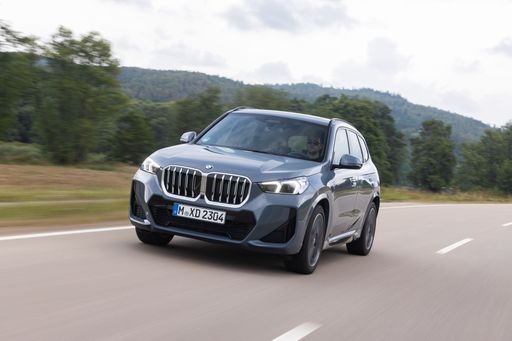
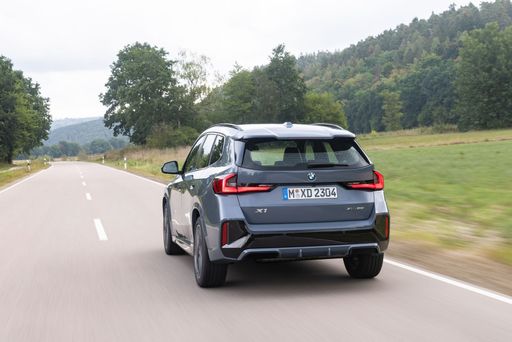
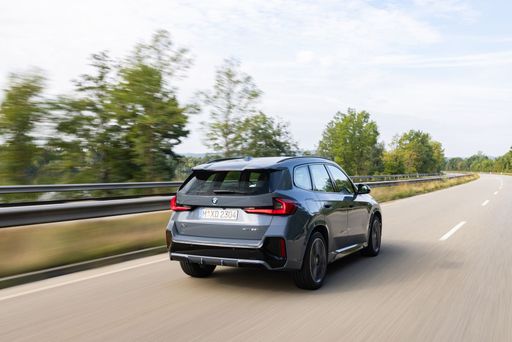
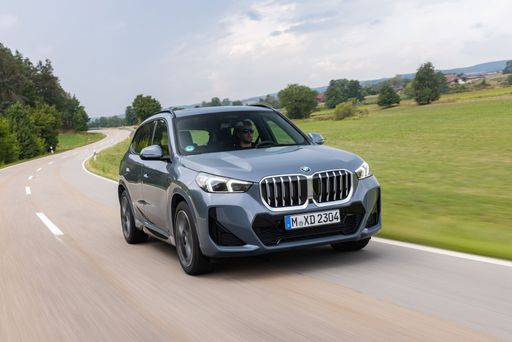
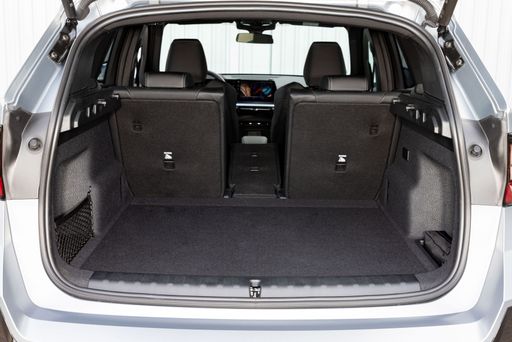
Hyundai Kona
The Hyundai Kona wears its personality on the outside with bold styling and sprightly handling that turns city driving into something a little more fun than a commute. It blends practical space, modern tech and sensible running costs into a compact, stylish package — a smart pick if you want flair without paying luxury prices.
details



Costs and Consumption |
|
|---|---|
|
Price
38200 - 55500 £
|
Price
23100 - 41600 £
|
|
Consumption L/100km
2.5 - 7.7 L
|
Consumption L/100km
4.6 - 7 L
|
|
Consumption kWh/100km
-
|
Consumption kWh/100km
14.6 - 16.8 kWh
|
|
Electric Range
81 km
|
Electric Range
377 - 514 km
|
|
Battery Capacity
14.20 kWh
|
Battery Capacity
1.3 - 65.4 kWh
|
|
co2
57 - 175 g/km
|
co2
0 - 163 g/km
|
|
Fuel tank capacity
47 - 54 L
|
Fuel tank capacity
38 - 47 L
|
Dimensions and Body |
|
|---|---|
|
Body Type
SUV
|
Body Type
SUV
|
|
Seats
5
|
Seats
5
|
|
Doors
5
|
Doors
5
|
|
Curb weight
1575 - 1935 kg
|
Curb weight
1370 - 1773 kg
|
|
Trunk capacity
490 - 540 L
|
Trunk capacity
466 L
|
|
Length
4500 mm
|
Length
4350 - 4385 mm
|
|
Width
1845 mm
|
Width
1825 mm
|
|
Height
1630 - 1642 mm
|
Height
1580 - 1585 mm
|
|
Max trunk capacity
1495 - 1545 L
|
Max trunk capacity
1300 L
|
|
Payload
490 - 500 kg
|
Payload
420 - 490 kg
|
Engine and Performance |
|
|---|---|
|
Engine Type
Diesel MHEV, Petrol MHEV, Petrol, Diesel, Plugin Hybrid
|
Engine Type
Electric, Petrol, Full Hybrid
|
|
Transmission
Automatic
|
Transmission
Automatic, Manuel
|
|
Transmission Detail
Dual-Clutch Automatic
|
Transmission Detail
Reduction Gearbox, Manual Gearbox, Dual-Clutch Automatic
|
|
Drive Type
Front-Wheel Drive, All-Wheel Drive
|
Drive Type
Front-Wheel Drive, All-Wheel Drive
|
|
Power HP
136 - 326 HP
|
Power HP
115 - 218 HP
|
|
Acceleration 0-100km/h
5.4 - 9.2 s
|
Acceleration 0-100km/h
7.8 - 11.9 s
|
|
Max Speed
190 - 233 km/h
|
Max Speed
162 - 210 km/h
|
|
Torque
230 - 477 Nm
|
Torque
200 - 265 Nm
|
|
Number of Cylinders
3 - 4
|
Number of Cylinders
3 - 4
|
|
Power kW
100 - 240 kW
|
Power kW
85 - 160 kW
|
|
Engine capacity
1499 - 1998 cm3
|
Engine capacity
998 - 1598 cm3
|
General |
|
|---|---|
|
Model Year
2024 - 2025
|
Model Year
2024 - 2025
|
|
CO2 Efficiency Class
D, E, F, B
|
CO2 Efficiency Class
A, D, C, E, F
|
|
Brand
BMW
|
Brand
Hyundai
|
Is the BMW X1 offered with different drivetrains?
The BMW X1 is offered with Front-Wheel Drive or All-Wheel Drive.




